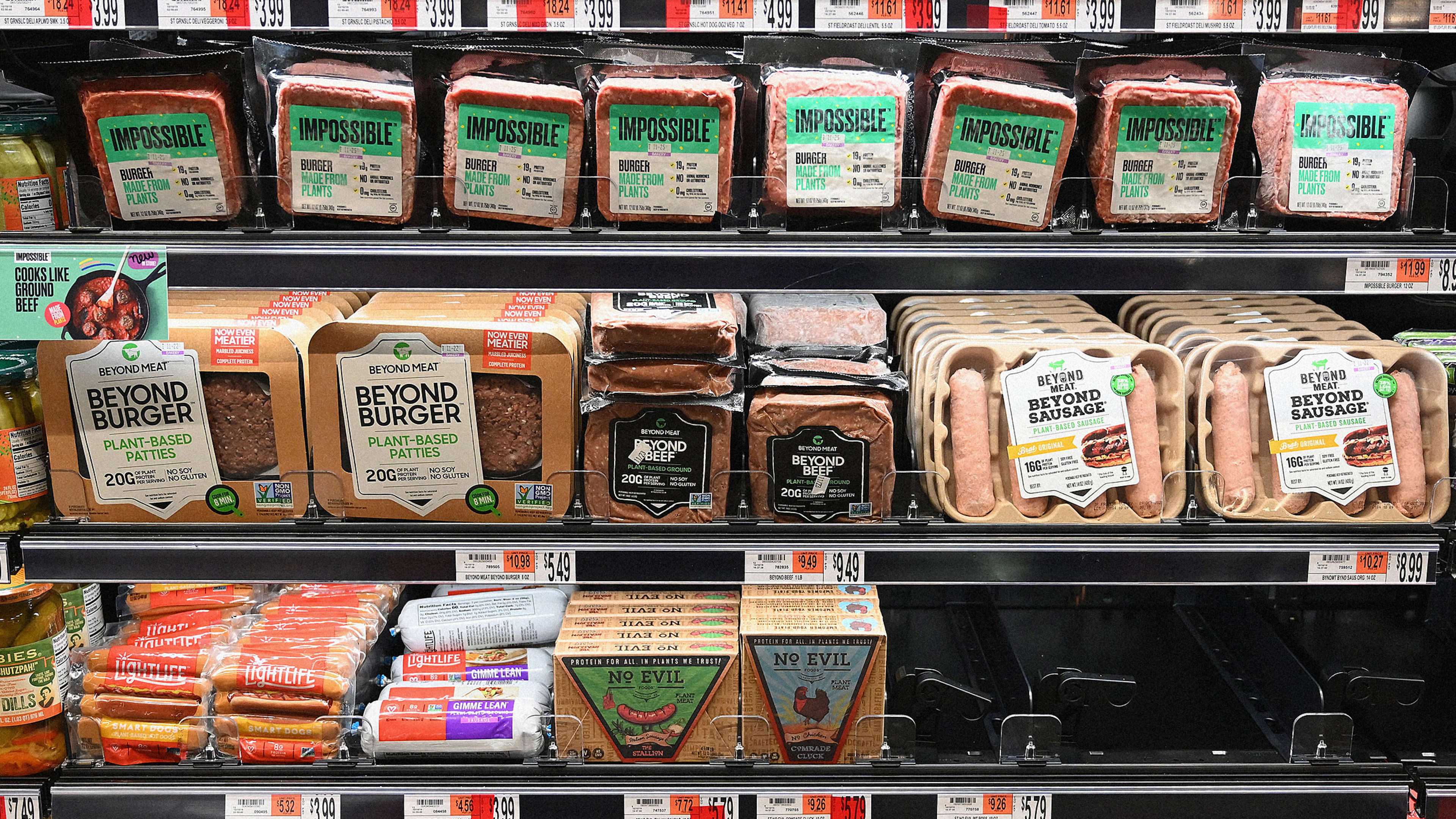What do you call a burger that isn’t made of meat? Plant-based options are growing rapidly, but there hasn’t yet been a consensus on how to refer to these meatless dishes. The issue, it seems, lies in whether consumers understand these foods best by names that mention the meat-based items they represent—burgers, sausage, bacon, and so on—or if the use of any meat terms is confusing and misleading. Now, the Plant Based Food Association has released its first plant-based meat labeling guide to create consistency across this emerging food sector.
The trade association represents more than 160 plant-based food companies, a sign of how the world of meat alternatives has been expanding. The presence of plant-based meats in grocery stores grew by 10% last year, according to the PBFA, and that doesn’t even cover the rise of alternatives in restaurants, from the Impossible Whopper to Beyond Fried Chicken. But legislators (and the meat industry groups that support them) in states such as Missouri and Arkansas have had issues with these products, fighting their use of the term “meat” by passing laws that prohibit their labeling as “meat” or with meat terms such as “sausage” if they are not actually from animals. This follows similar battles between the egg industry and faux egg makers and the milk industry and nut milk producers.
The PBFA has been fighting these bills, but it still wants to create a labeling standard that is clear across the plant-based category, so that all customers can understand what they’re buying.
These recently released meat alternative standards do allow for references to the type of animal meat (chicken, sausage, etc.) and the form of the product (nuggets, tenders, burgers) that these plant-based products represent, as long as there is a qualifier that clearly indicates the item is plant-based or vegetarian. Those qualifiers can include phrases such as “plant-based,” “vegan,” “meatless,” “meat-free,” “vegetarian,” “veggie,” “made from plants,” and other similar terms. That qualifier also has to be in a prominent position on the display panel, the standards note.
Representatives from Beyond Meat, Tofurky, Morningstar Farms, and others were on the PBFA plant-based meat standards committee, and the association recommends that these standardized labeling terms be adopted within a year. It’s not yet clear how the meat industry will react to this standard of labeling, but the PBFA promises to keep fighting “real meat” policies.
In November, PBFA along with Upton’s Naturals, one of its member companies, won one such legal fight in Mississippi. Earlier this year, the Mississippi legislature, at the request of the Mississippi Cattlemen’s Association, passed a law banning the use of meat product terms to describe plant-based foods. But with legal representation from the Institute for Justice, PBFA and Upton’s Naturals filed a First Amendment lawsuit (similar lawsuits are pending in Arkansas and Missouri, and more are likely to follow, per PBFA). Mississippi state officials then agreed to revise regulations to allow plant-based food companies to continue using common meat terms alongside proper qualifiers—just as PBFA’s new plant-based meat labeling guidance suggests.
Recognize your brand’s excellence by applying to this year’s Brands That Matter Awards before the early-rate deadline, May 3.
